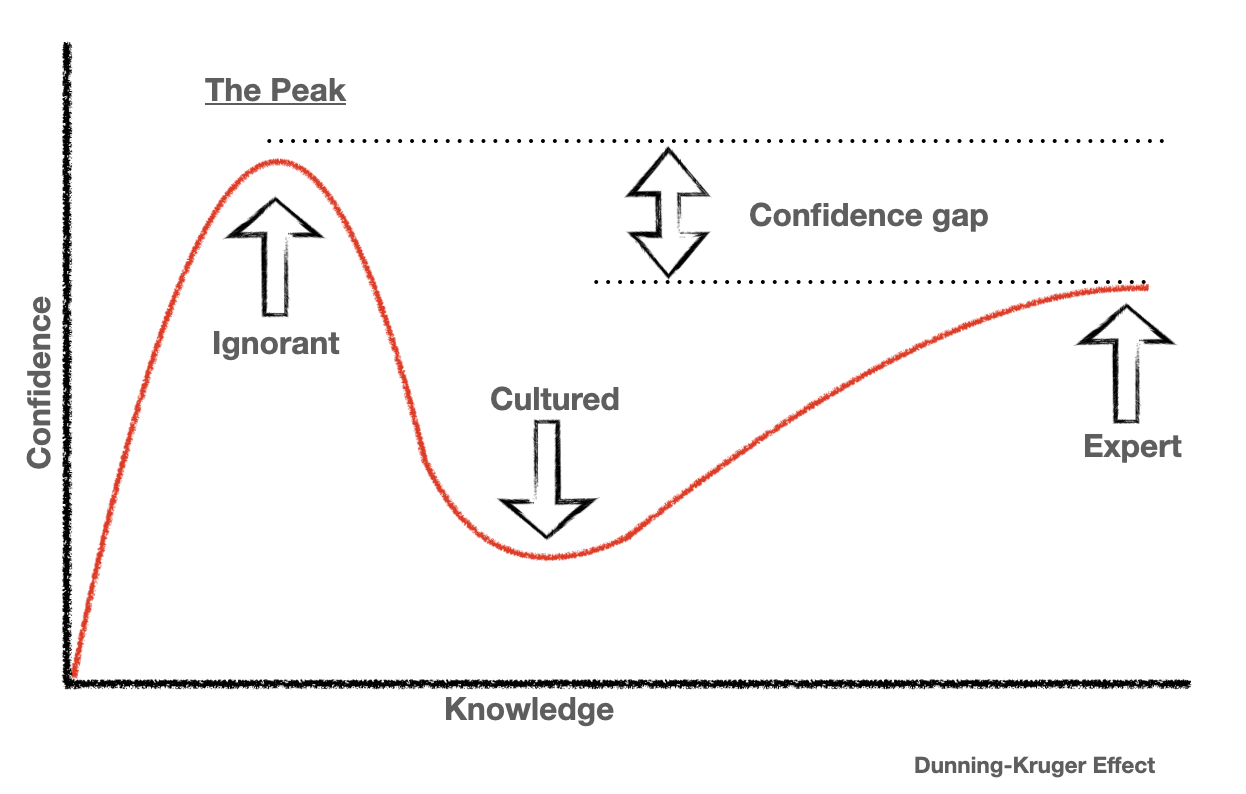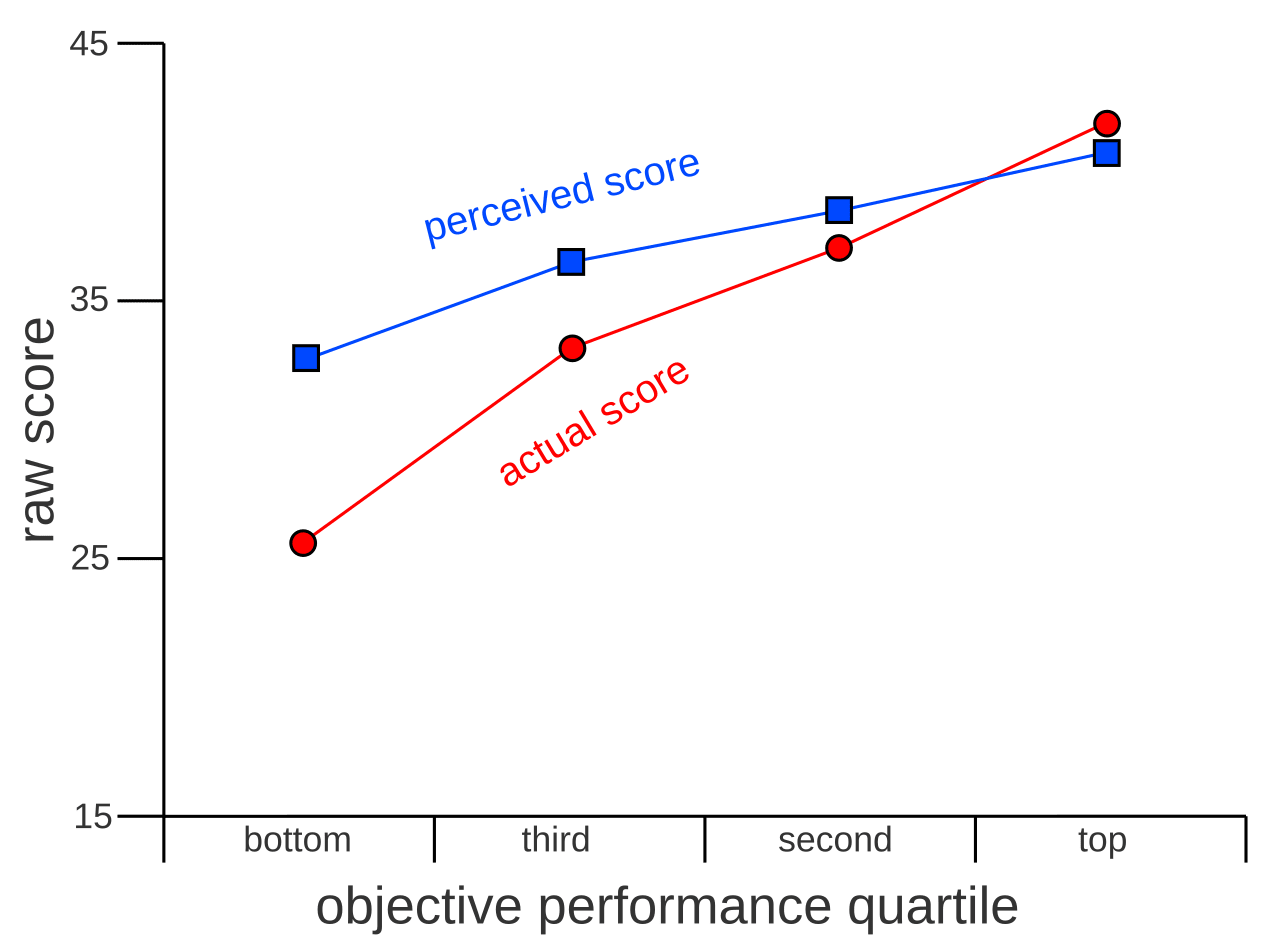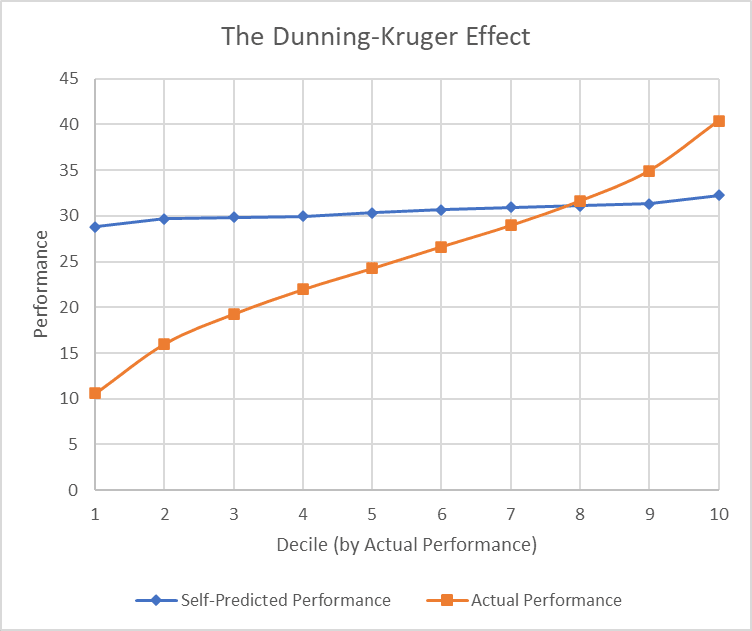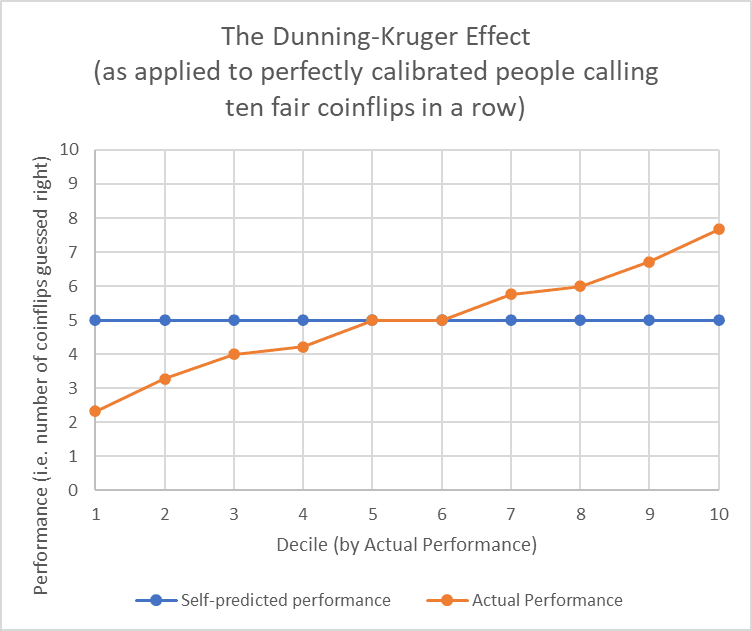
 LessWrong (Curated & Popular)
LessWrong (Curated & Popular) “You’re probably overestimating how well you understand Dunning-Kruger” by abstractapplic
6 snips
Sep 30, 2025 Explore the intriguing misconceptions around the Dunning-Kruger effect, where popular beliefs often misinterpret the relationship between confidence and competence. Delve into the actual findings revealing that many people tend to underestimate their own abilities rather than overestimate them. Discover how statistical artifacts influence perceptions of competence and how simulated analyses can shed light on biases in self-assessment. Finally, learn practical steps for diagnosing miscalibrations in your own understanding.
AI Snips
Chapters
Transcript
Episode notes
Canonical Graph Misleads
- The canonical Dunning-Kruger portrayal (inverted slope) misrepresents the original findings.
- Dunning and Kruger actually found bias toward modest overconfidence with competence-driven updates, not a slope inversion.
Elf Simulation Reveals Statistical Leak
- The host simulated elves who always predict m+5 and grouped them by realized output to reproduce the classic curve.
- Lucky performers cluster in high quantiles and unlucky ones in low quantiles, creating an apparent miscalibration.
Statistical Mirage Drives The Effect
- Many Dunning-Kruger studies fail to correct for the statistical artifact of post hoc grouping.
- When corrected, prominent replication finds no significant residual Dunning-Kruger effect beyond modest overconfidence.




